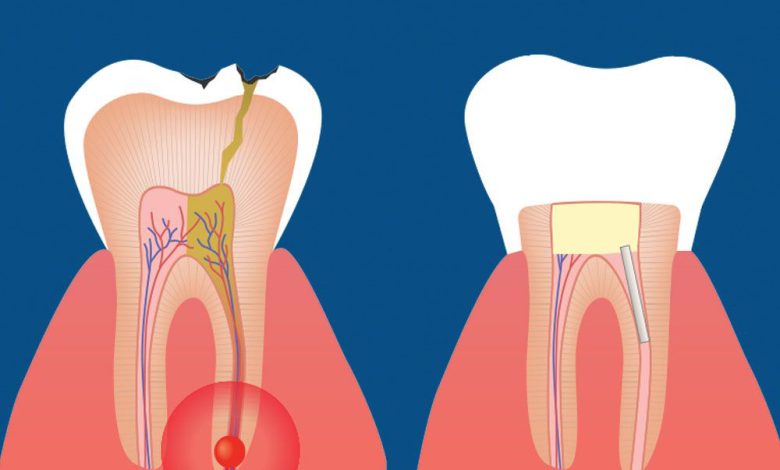What are the Steps for a Root Canal Procedure?

A root canal procedure, also known as endodontic treatment, is one of the most common dental procedures available today. Millions of people undergo root canal procedures every year, whether they’re performed on baby teeth or full grown adult teeth. A root canal procedure is usually required when the pulp inside your tooth dies, either due to an injury or because of an infection. At this point, you may experience pain and sensitivity in the tooth, and if you don’t have a root canal procedure to remove the dead pulp, your tooth will likely need to be removed altogether.
How do I know if I need a root canal?
Anyone who has had a cavity knows that it can be painful. But when pain persists, it could mean that you need more than just tooth-filling. If you have what is commonly referred to as an infected tooth, or dental pulpitis, then you might want to look into getting a root canal procedure performed. Before scheduling an appointment with your dentist, though, it’s important to know if root canal therapy is right for you—and how much it will cost. This guide explains what root canal therapy is and offers some guidelines on whether or not you should go ahead with the treatment.
How will I get anesthesia before my procedure begins?
If you’re getting your procedure done on an outpatient basis (no overnight stay), you won’t need to be put under. However, if you’re staying in our facility overnight, we will ensure that you’re properly sedated. We generally administer general anesthesia in our hospital so that your stay is as comfortable as possible. If one of our dentists gives you a different prescription, follow it to ensure safe and effective treatment. Afterward, we will make sure that you have transportation arranged so that you can safely go home after your procedure is complete. No matter what, just know that our team has everything under control—and we want to make sure every aspect of your experience is as safe and comfortable as possible.
What will happen during my root canal treatment?
Your dentist will start by numbing your tooth and surrounding area with either local anesthetic or Novocain.
Will there be any pain after my treatment is over?
The day of your root canal procedure, you will be asked to drink lots of water. (The use of local anesthetic numbs your mouth and throat but does not make you unconscious.) Then, using X-rays, he or she will identify any problem areas.
What do I need to do when I leave the office after my root canal treatment session is done?
When you leave your dentist’s office, take it easy for about two days. You can eat normally and brush your teeth, but do not floss or use interdental cleaners (picks, brushes). You should avoid any strenuous exercise—especially those that might cause jarring to your jaw or head. As with any surgery, it is important to take these instructions seriously; if something doesn’t feel right—for example, a tenderness or pain—be sure to contact your dentist immediately. If there is swelling in your face after treatment, apply ice packs as directed by your dentist.
Are there any special things I should eat after getting my root canal treatment done?
In many cases, getting an implant is also cheaper than extracting and replacing a single tooth. However, if you’re looking for options to replace missing teeth—and not just one option—you’ll find that implants are typically much more expensive than dentures or even traditional dental bridges.






